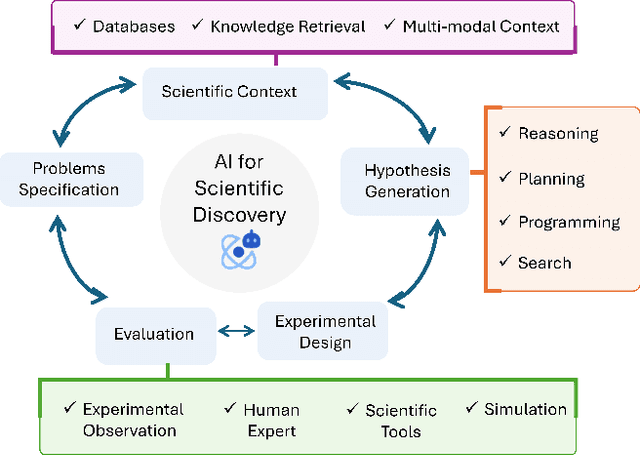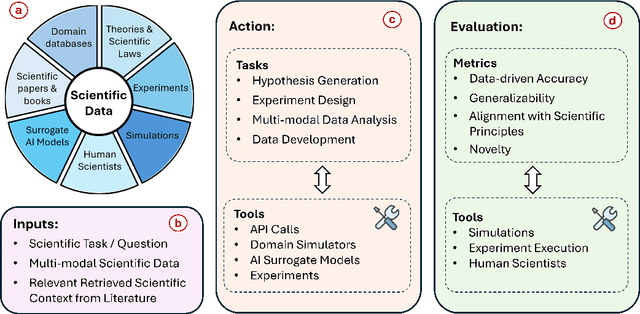Towards Scientific Discovery with Generative AI: Progress, Opportunities, and Challenges
Paper and Code
Dec 16, 2024

Scientific discovery is a complex cognitive process that has driven human knowledge and technological progress for centuries. While artificial intelligence (AI) has made significant advances in automating aspects of scientific reasoning, simulation, and experimentation, we still lack integrated AI systems capable of performing autonomous long-term scientific research and discovery. This paper examines the current state of AI for scientific discovery, highlighting recent progress in large language models and other AI techniques applied to scientific tasks. We then outline key challenges and promising research directions toward developing more comprehensive AI systems for scientific discovery, including the need for science-focused AI agents, improved benchmarks and evaluation metrics, multimodal scientific representations, and unified frameworks combining reasoning, theorem proving, and data-driven modeling. Addressing these challenges could lead to transformative AI tools to accelerate progress across disciplines towards scientific discovery.
 Add to Chrome
Add to Chrome Add to Firefox
Add to Firefox Add to Edge
Add to Edge